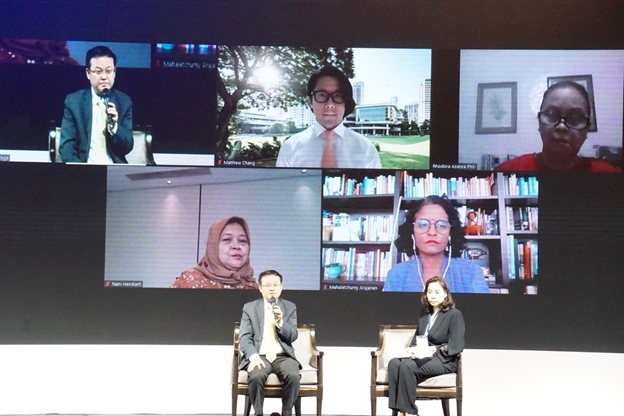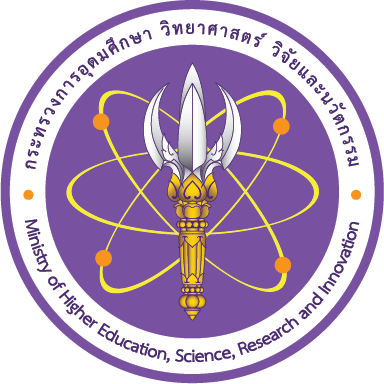In a plenary session on ASEAN Bioeconomy Policy Sharing & Bioeconomy Network at the ASEAN Innovation Roadmap & Bioeconomy Forum, experts from five ASEAN member countries - Thailand, Singapore, the Philippines, Indonesia and Malaysia - shared and exchanged information on bioeconomy policy and actions taking place in his/her respective countries. The session was moderated by Dr. Kanchana Wanichkorn, Vice President of the Office of National Higher Education Science Research and Innovation Policy Council (NXPO).

In this session, Dr. Kitipong Promwong, NXPO President presented Thailand’s Bio-Circular-Green Economy (BCG) model, which forms a blueprint for the country’s sustainable development. Assoc. Prof. Dr. Matthew Chang, Director of the Synthetic Biology for Clinical and Technological Innovation at the National University of Singapore discussed potential of synthetic biology in driving bioeconomy and innovation and introduced the Singapore Consortium for Synthetic Biology. Dr. Nani Hendiarti of the Coordinating Ministry for Maritime Affairs and Investment introduced audiences to a special bio economic zone being developed by the Indonesian government. Located in North Sumatra, the special bio economic zone is home to Herbal and Horticulture R&D Center, Center of Excellence for Agriculture Practices, Botanical Garden and Food Estate. Presentation on the Philippines was given by Prof. Emeritus Dr. Rhodora Azanza, President of the National Academy of Science and Technology. Her talk centered around the development of blue bioeconomy based on the country’s rich marine resources. Dr. Mahaletchumy Arujanan, Executive Director of Malaysian Biotechnology Information Centre (MABIC) gave an extensive review of the implementation of Malaysian National Biotechnology Policy since its launch in 2005.
At the conclusion of the session, expert panels unanimously voiced their support to Thailand’s proposal to establish an ASEAN Network on Bio-Circular-Green Economy which can play a pivotal role to facilitate and advance BCG agenda and promote sustainable growth in the ASEAN region.









